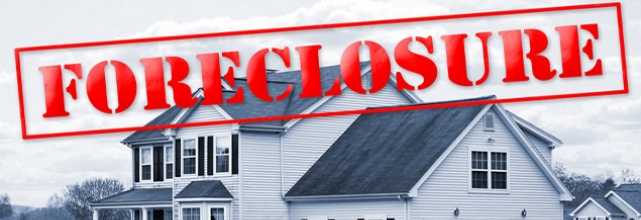Foreclosure Process

Real Estate foreclosures has proven to be a safe investment for your hard earned money. Most Americans are able to fulfill their dream of homeownership. However, some homeowners find themselves in financial difficulties causing them to default on their mortgage payments. This event causes their home to go into foreclosure.
If a homeowner fails to make payment on their mortgage, the lender will serve the homeowner with a Lis Pendens, or Notice of Default. A Notice of Default indicates that unless sufficient funds owing on the property are paid, the homeowner will be evicted and the home will be resold in an attempt to recover the amount owed on the loan in default. After the homeowner is served with a Notice of Default, 4 possible scenarios present:
- The homeowner makes restitution on any and all outstanding monies owed to the lender. Each state has governing laws which provide a grace period to the homeowner to allow additional time to fulfill financial obligations. This time period is referred to as pre-foreclosure.
- The homeowner places his property on the sale market. Upon sale and closing, the seller then is able to pay the remaining balance of the mortgage, including all principal and fees. This is a solution in the best interest of the homeowner as it will least adversely affect his credit history.
- The property in question is sold at a pre-foreclosure public auction.
- The lender evicts the homeowner and is then responsible for the recovery of monies owed on the property. The lender then places the property on the market using conventional sales techniques, traditional auctions, online auctions and foreclosure listings. This property is now referred to as REO - meaning real estate owned by a lender.
Pre-Foreclosure Process
Foreclosure homes offer opportunities to the homebuyers in the market for affordable housing. Using information found in pre-foreclosure lists, a homebuyer could approach the current homeowner with an offer. Typical transactions of this nature benefit both the current homeowner and the prospective buyer. The prospective buyer can inspect pre foreclosure homes anytime, obtain financing and many times acquire the property for anywhere from 20 - 40% below market cost. The current homeowner is benefiting by enabling himself to negotiate the ability to retain some of the equity built into the house as well as save his credit history from reflecting a foreclosure.
Foreclosure Auctions Process
If a loan is currently in default at the end of the pre-foreclosure grace period, the property can be purchased at public foreclosure auctions. Buyers beware. At a public auction, the full purchase price will need to be paid for in cash and many times the property in question is not available for viewing. Due diligence is greatly needed when purchasing properties at pre-foreclosure auctions.
REO / Bank Owned Foreclosure Process
If the lender has taken possession of the property (REO), the property then can be purchased by conventional sales, or through any means the lender deems appropriate. Many times the lender will take possession, perform maintenance on the property to make it more marketable, clear the title and sell it during open market. While a bargain is available on these bank foreclosures, it is generally less than if the property was purchased during the pre-foreclosure stage. If the lending institution, instead of a bank is a government agency such as HUD and VA, then these lending institutions are responsible for selling these properties.
By using ForeclosureDataBank you can obtain all pertinent information needed to assist you in purchasing a home in pre-foreclosure or foreclosure. Subscribe to our services today and you can be assured you will have 24/7 access to all foreclosure listings as well as available photos on each property found in our listings.


